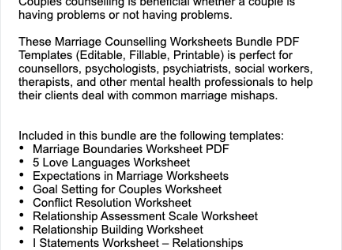
Why Breakups Turn Nasty: The Surprising Psychological Reason
Breakups are hard enough without things turning hostile. Yet spiteful partings happen more often than we'd like to admit. New research reveals an unexpected factor that frequently fuels the fire - believing in relationship destiny.
When you put weight on whether partnerships are "meant to be," the stakes heighten dramatically. Suddenly every conflict signals incompatibility rather than just normal growing pains. Disagreements no longer represent opportunities for growth, but rather definitive signs it's time to call the whole thing off.
This destiny mindset primes partners to turn on each other instead of turning toward each other when trouble strikes. Without the commitment to work through challenges, relationships crumble at the first sign of imperfection. Resentment builds as blame shifts outward.
The result is often an ugly mess of accusations, attacks and animosity. Once loving partners morph into bitter enemies practically overnight, all because the fairy tale fantasy gets shattered.
The Psychology Behind Breakup Bitterness
When destiny beliefs have been dashed, it unleashes a storm of difficult emotions:
- Fear sets in that this means you chose the wrong person after all
- It feels easier to just cut ties rather than keep trying with someone seemingly not "meant to be"
- There is profound disillusionment and sense of loss around the failed "soulmate"
- Former partners harbor anger about missed potential for an epic, destined love
This toxic cocktail makes striking out in hurt and frustration tempting. People lash out to numb their own pain, trying to soothe abandonment wounds.
Of course none of this excuses cruelty during breakups. But seeing the inner turmoil beneath these battles can help halt the endless blame game.
Healthier Breakup Strategies
Getting stuck in accusing your ex of ruining what could have been won't heal heartbreak. Those clinging to destiny beliefs must shift their mindset to have a smoother split.
Rather than expect partners to be perfect, embrace that all couples inevitably have conflicts. Relationships aren't about fate, but about continually choosing each other through life's ups and downs.
With more empathy, reflection and accountability, it's possible to dissolve even the closest bonds consciously. Here are tips:
The key is letting go of bitterness by taking responsibility for your own emotions and responses. Though no magic bullet for pain exists, this mindset allows managing breakups with much less destruction.
Focus inward on learning and growing rather than blaming outward. Emerging wiser from the ashes becomes the goal - not just pointing fingers over what went wrong.
Destiny may have sparked initial connection, but conscious choices sustain relationships long-term. With mutual care and maturity, even the messiest uncouplings can avoid turning unnecessarily nasty.
How can couples work together to overcome the challenges they face and prevent their relationship from crumbling?
Here are some tips for couples to work together to overcome relationship challenges:
1. Communicate openly and honestly. Make time to talk about issues as they come up before they escalate. Be vulnerable in expressing your feelings and needs. And actively listen without judgment to understand your partner's perspective.
2. Compromise when you have differing needs or preferences. Look for win-win solutions where each partner's core needs are met. Be willing to give a little to support each other.
3. Deal with conflicts constructively. Don't sweep issues under the rug or get defensive. Focus on the problem at hand, not attacking each other. Seek first to understand, then work towards a resolution.
4. Support each other's personal growth and interests outside the relationship. Give each other space to pursue individual friendships, hobbies, career goals without jealousy or trying to change the other person.
5. Address external and internal stressors like finances, health, trauma, that add strain to the relationship. Tackle these as a team through open communication and thoughtful planning.
6. Make quality time for fun, intimacy and connection. Don't let resentment or disconnect build by continuously prioritizing other obligations over each other. Date nights, activities together and physical affection are essential.
7. Seek counseling if challenges become overwhelming. There's no shame in asking for help. A therapist can give objective guidance on improving communication, managing conflict and meeting each other's needs.
The key is maintaining empathy, accountability and commitment to face issues head-on together instead of pointing fingers. Reinforce your partnership, not the problems, is top priority. With mutual understanding and effort, even the rock iest relationships can become stronger.








































